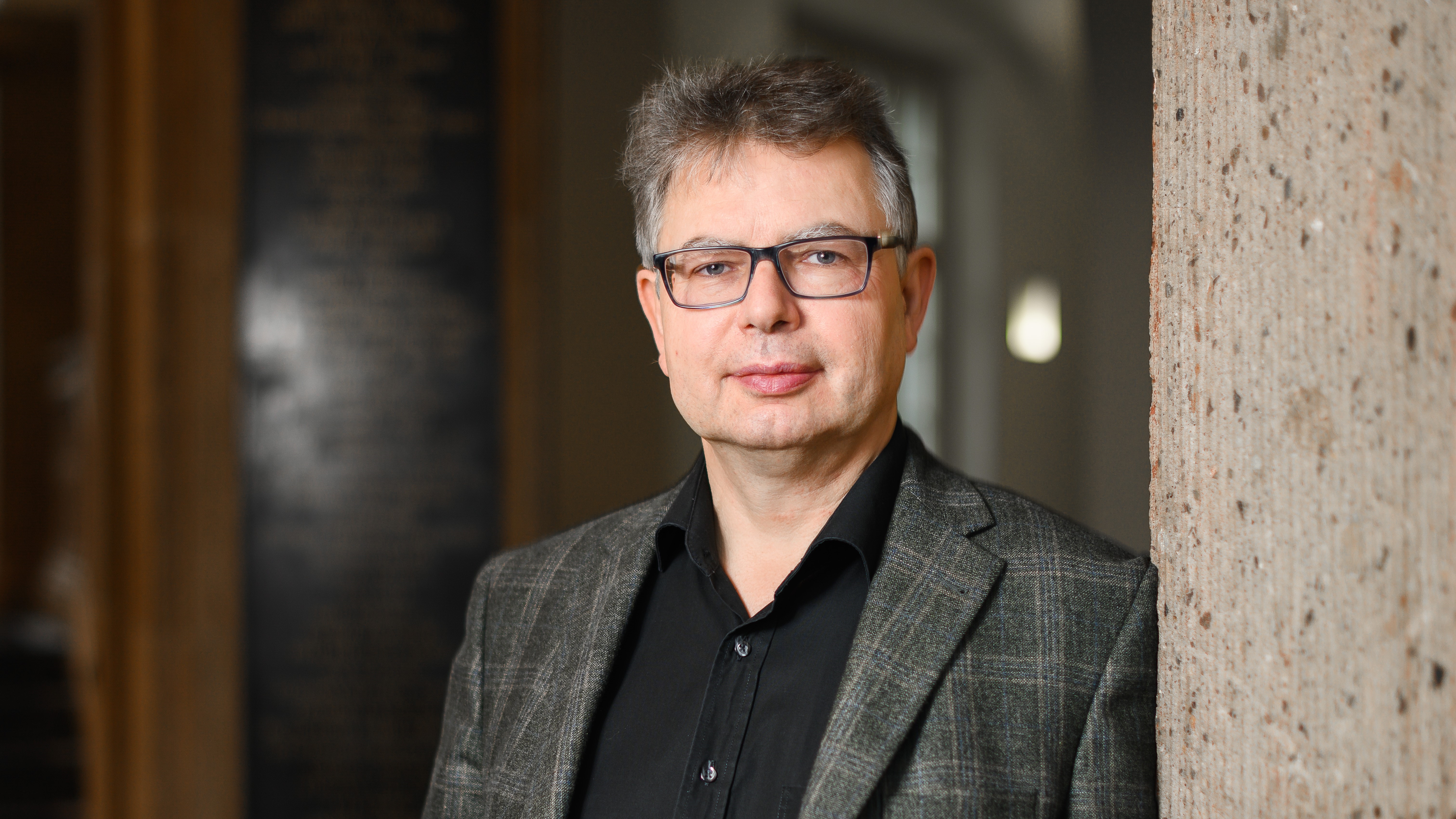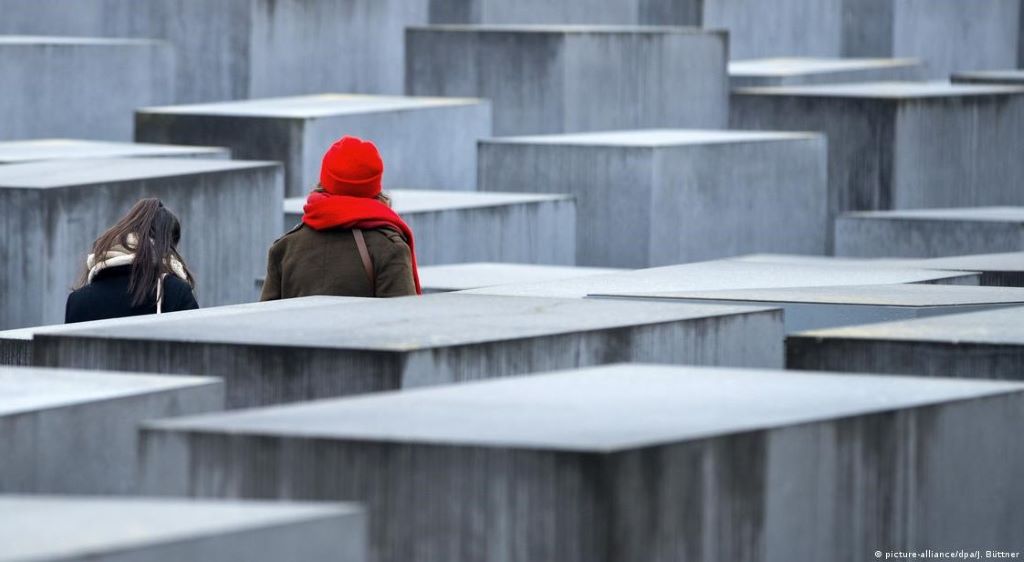"Decent people must take a stand!"

Professor Zimmerer, since the Hamas attack on Israel on 7 October and the onset of war in Gaza, the atmosphere in Germany has been very tense. The Berlin senate wanted to make cultural funding contingent on a declaration against anti-Semitism, but was forced to retract its proposal following protests by creatives. You say that at one time, a (self-) critical approach to its own history also gave Germany credibility with the rest of the world. What's your view on the current culture of debate in Germany – including in international comparison?
Juergen Zimmerer: 7 October, with the horrific terrorist attack on Israel by Hamas, which of course still isn't really over since a large number of hostages are yet to be released, and the war in Gaza which has been going on for more than 100 days, represent a crossroads for the way Germany deals with its own history.
The self-critical approach, in particular with regard to the Holocaust, led to an impressive solidarity with the people who were attacked in Israel, and with Jews in Germany. In a way, it was the civic counterpart to the "reason of state" proclaimed by Chancellor Merkel, that Israel's right to exist is part of the German national interest.
Unfortunately, we are also seeing the weaknesses and problems of such a loaded "reason of state", which – as it derives from the unique character of the Holocaust – limits the universal lessons from the Third Reich's crimes against humanity to solidarity with Jewish people.
For some time now, a conservative, right-wing, nationalist to ethno-nationalist rollback attempt has been taking place, under the guise of a critical engagement with history. We are reducing the lessons learned from the crimes of National Socialism to the Holocaust and to a specific kind of anti-Semitic crime – and these are then used to essentially disregard all other lessons.
It means, for instance, that the right to asylum, the refugee and human rights conventions are all being called into question. The only lesson that remains from the Nazi period is then to show solidarity with Israel. And that isn't enough.

Misused to divide society
In my view, there should be absolutely no doubt that we must have solidarity with Jewish people, and thereby make an attempt at reparation. This is part of taking on historical responsibility, and it applies to everyone who lives here. But we can – and we must – extend that German duty of historical responsibility, and apply that "never again" to racism as well, and to the return of ethno-nationalist ideas.
I'm afraid to say that exactly the opposite is happening, and so 7 October also marks an important date in the history of Holocaust remembrance, the "reason of state", and the fight against anti-Semitism, which is being misused to divide German society.
You can see this in the phenomenon of Muslims or people of Arab extraction coming under general suspicion, or the fantasy of people with dual nationality having their German citizenship removed (here too, images of Muslims or Arab people are evoked), which has cut through into mainstream society.
The starting point for this was the reprehensible and repellent celebration of the Hamas attack by a few of these people. But it should be possible to address this and reject the glorification of violence and terrorism without immediately calling into question the citizenship – the Germanness, in fact – of the people responsible. Some people in this country used the widespread outrage over Hamas to propagate anti-Muslim positions they already held.
But when the justified and necessary fight against anti-Semitism is misused to propagate ethno-nationalist ideas, this makes a mockery of all the lessons learned from the Third Reich, and ultimately undermines the fight against anti-Semitism as well.
To someone with an ethno-nationalist mindset, anything foreign, anything different is suspect, and they will try to make it disappear. In January, research by Correctiv revealed that in the far-right camp, plans were evidently being made to deport millions of people.

Time for a refresher in humanity
It is possible to write about the Holocaust and the crimes of colonial powers without downplaying anything. In her latest book, Charlotte Wiedemann focuses on the numerous blind spots in our culture of commemoration. By Rene Wildangel
"People have to be forced to engage critically with history"
September saw the publication of the volume of essays you edited, "Erinnerungskaempfe: Neues deutsche Geschichtsbewusstsein" (Memory battles: A new German historical consciousness). You write that a (self-) critical approach to your own history was once a fundamental consensus in German society, and at the core of its identity. What happened? Has this consensus ceased to exist, or do we have to admit to ourselves that it never did exist to this degree?
Zimmerer: There still is – thank God – a broad consensus that we, as Germans, have a special duty to engage with our past. There is also a consensus that a special responsibility proceeds from this past, even if this consensus is on the wane, when you look at the forays into the politics of remembrance by the AfD, and the "new" as well as the "old" far right. Admittedly, to begin with this critical reappraisal of history was anything but voluntary.
And that is no surprise: the German people, whose broad support – and we must not deceive ourselves about this – made the barbarism of the Third Reich possible in the first place, and who then enjoyed the idea of themselves as the master race until the turning point of the Second World War, didn't just disappear after 1945.
There was no post-war "zero hour" with regard to the continuity of Nazi and ethno-nationalist attitudes within the apparatus of state, the justice system, academia, culture and politics. All that had ended was people's ability to support Nazi policies openly and to reap career benefits or other rewards from that.
Any critical reappraisal encounters resistance. You can see that from the reservations people had about the first Nazi trials. It was only in the 1970s that this reappraisal became an increasingly widespread grassroots movement, which created the wealth of memorials we know today and which – rightly – are admired internationally.
A narrowing of historical perspective
However – and this is also part of the story of Germany coming to terms with its past – the idea of what the National Socialist crimes actually were has narrowed in the public perception to concentrate increasingly on the Holocaust – the murder of six million Jews. It took until 2021, for example, for a German president to expressly acknowledge the 23 million victims of Germany's war of annihilation in Eastern Europe, to call them victims.
This narrowing has consequences that we can see in the current debate. This is about the question of particular or universal lessons from the Nazi period. Which is to say, we don't need any discussion on whether we must take lessons from history; just which lessons we should take from it. We don't need to ask if the Holocaust was unique, but which of its elements were unique – anti-Semitism with its specific quality, say.
Asking these questions would enable us to look beyond the particular way in which we combat anti-Semitism, to take in more general aspects of how people are excluded, stigmatised and persecuted, and to avoid the unedifying debate about hierarchies of victims.
Specific groups of victims have each had their own experiences of persecution, but also experiences they share with others – universal experiences, even. If you want to take a "lesson" from history, you can't find it in playing one social group off against another, as we see all too often.
The radicalisation of political discourse
You recommend that, now more than ever, we should explore the final years of the Weimar Republic more thoroughly. What parallels do you see there?
Zimmerer: The radicalisation of the political discourse and the increasing stigmatisation of social groups are parallels with the final years of the Weimar Republic. Then, too, social groups were scapegoated and used to distract people from the real causes of the increasingly frequent crises.
In the Weimar Republic, it was Jewish people first and foremost who were stigmatised, including with the idea of the supposed Jewish global conspiracy, which was blamed for many political problems both at home and abroad. And we know the horrifying end point of all this: the Holocaust.
Today – alongside anti-Semitism, which is still present – the scapegoats are the "foreigners", the "asylum seekers", the "little pashas". People from the Global South, the "migrants", are even being blamed for the majority of anti-Semitism.
Symbolic politics is increasingly replacing any genuine engagement with problems: Germany's poor performance in the most recent Pisa study was blamed not on underfunding of schools, but on students with an immigrant background.
A lot of people are more intent on discussing a ban on gender-neutral language than on discussing banning the AfD or combatting right-wing extremist groups. At the same time, politicians are outdoing one another with ever more radical suggestions for dealing with these people who are being scapegoated.

The "core culture" debate excludes Jews and Muslims
While the AfD grows ever stronger, in October Chancellor Scholz declared himself in favour of a harder migration policy. Even the Greens brought up the issue of "imported anti-Semitism". Friedrich Merz, the head of the conservative CDU, said that buying a Christmas tree was part of German identity. Are we seeing a lurch to the right in politics and society right now?
Zimmerer: A core culture debate that links German identity to the Christmas tree excludes both Jews and Muslims. The same goes for insisting on a general Christian identity or the obligation to put up crosses in public offices. That is the continuity that exists behind all the selective pro-Jewish opportunistic rhetoric from many politicians.
Unfortunately, we are witnessing an increasing normalisation of far-right positions. Although, as I said before, this isn't a new position in Germany. But the fact that it could come to this and that so many people could be involved in this normalisation makes a mockery of that "never again" you hear from every soap-box.
You are very active on "X" (formerly Twitter), and there is quite an ill wind blowing through some of the discourse there, to put it mildly. How is the media contributing to the sometimes very heated and hostile atmosphere? Are we seeing a coarsening of the discussion culture?
Zimmerer: Oh, certainly – there are enough studies on the subject out there. And in two respects: social media limits the information you absorb, and makes it easier to publicise your own position, unfiltered and with the anonymity that the internet provides.
At the same time, in the specific attention economy of social media, it's the most extreme positions that really cut through: here we see structural processes of self-radicalisation. It's almost impossible to have a balanced, nuanced debate. On the other hand, social media is a fact of life now, and you can't just leave these digital platforms to the extremists. Whether you find it appetising or not, democrats have to be present in this discourse arena.
A new historical awareness
The book of essays you edited, "Erinnerungskaempfe", looks at the fundamental question of what is part of German history and who is speaking on the topic of remembrance. How can a new historical consciousness help us to actually learn those lessons from the past and take a different view of the future?
Zimmerer: The point of departure for my thoughts on this was not normative. The aim is not to prescribe what historical consciousness should look like or who and whose history counts towards this, or doesn't. I'm much more concerned with creating an awareness that there are different positions, different debates and also different battles around remembrance. These issues are closely connected to the idea of how German society is constituted, and who belongs to it along with their history and who doesn't.
30 percent of all Germans have some history of migration, if not more. But we conduct this debate around our culture of remembrance as if today's Germany was still the Germany of 1945, including in its demographic make-up. And so there is an ethno-nationalist idea at the heart of our remembrance culture. What we need to do now is not to exclude certain events, subjects and people from our remembrance, but to add the perspectives and memories of people who have a different biography.
Because of course, people bring their memories with them, their experiences and their trauma. Take the people we called "guest workers" for instance. They played a very substantial part in building modern Germany, in a literal sense. But while the "rubble women" became part of the country's founding myth, the history of the guest workers still has a niche existence.
Many of these workers came from Turkey. And so Turkish and Islamic history has become an important frame of reference and part of German history, because they are also part of the experiences and influences of people who live here.
There are many other such examples I could give here, and the book does just that. When I was selecting contributors, I also wanted to depart from the traditional monotony that you find particularly in academic history volumes, and provide evidence that remembrance culture should be expanded not only in terms of topics, but also the people telling us about them.
On "X", you write: "Time for 2023 to end, but with little hope that 2024 will be better of its own accord. Decent people need to take a stand, globally..." Who are these "decent people", and what would such a stand need to look like?
Zimmerer: I'm really calling on people to take seriously the universal lessons from the history of violence, the universality of human rights, everywhere in the world and for all people: it is wrong to torture people, it is wrong to take people hostage, it is wrong to rape people and wrong to murder them.
Everywhere, no matter who is doing it! Human dignity is inviolable, that's what it says in the German constitution! We cannot play off one group against another, or prioritise one over another, whatever our motives might be. In the face of global tensions and the challenges of climate change, this is becoming ever more important.
Interview conducted by Ceyda Nurtsch
© Qantara.de 2024
Translated from the German by Ruth Martin

